What Is THCp? (And Whether It's Actually Dangerous

Quick Answer: THCp is a potent cannabinoid discovered in 2019 that binds to CB1 receptors more strongly than Delta 9 THC, potentially making its effects more intense and longer lasting. While not proven dangerous, its strength, limited research, and unregulated market demand careful, low-dose use and verified product sourcing.
Disclaimer: This content is for educational purposes only and should not be interpreted as medical advice. THCp remains under-researched, and its safety, dosing, and long-term effects are not clinically established. Always consult a qualified healthcare professional before using cannabinoids, especially if you have medical conditions, take prescription medications, or are pregnant or breastfeeding. Mellow Fellow products are intended for responsible adult use only where legally permitted.
THCp has quickly become the new name on vape and gummy labels, often promoted as “33 times stronger than THC.” Discovered in 2019 by Italian researchers, it appears to bind more strongly to CB1 receptors in the brain than Delta 9 THC, which could explain why users describe intense, long-lasting effects from very small doses.
But its strength also raises safety concerns. Because so little research exists, the real risks and benefits are still uncertain - making responsible use essential.
This guide separates the facts from the marketing claims and offers practical, research-based insight into what THCp might do, how to approach dosing, and what precautions can help reduce the chance of an unpleasant experience.
Key Takeaways
- THCp is a newly identified cannabinoid that binds to CB1 receptors up to 30 times more strongly than Delta 9 THC, producing longer-lasting and more potent effects.
- Early research remains limited to animal models, so most safety and dosing information relies on user reports and preliminary data.
- Common side effects include anxiety, confusion, and disorientation, especially at higher doses or when used without proper tolerance.
- Safe use involves starting with 0.5–1 mg, purchasing only from brands that provide verified third-party lab testing, and avoiding unregulated or mislabeled products.
- Legal status varies by state; THCp remains in a federal gray area under the 2018 Farm Bill but may be restricted locally.
- Blended formulations with cannabinoids like CBD, Delta 8, or CBN produce smoother and more balanced effects than pure THCp.
- Shop Mellow Fellow’s pharmacist-formulated THCp products for lab-tested, carefully balanced blends designed for safer, controlled experiences.
What Is THCp?
THCp, or tetrahydrocannabiphorol, is a naturally occurring cannabinoid discovered in 2019 by Italian researchers at the University of Modena and Reggio Emilia. It shares nearly the same molecular structure as Delta 9 THC but includes a longer seven-carbon side chain instead of five. That small change increases how strongly it binds to CB1 receptors in the brain, potentially producing more potent and longer-lasting effects.
In the original study, THCp showed a binding affinity of about 1.2 nanomolar (nM), compared to 40 nM for Delta 9 THC - suggesting it binds roughly 30 times more effectively. Preliminary animal tests appear to confirm typical cannabis-like responses at much lower doses. Still, this does not mean THCp is 30 times “stronger” for humans; the body’s receptor system has limits, and research remains minimal.
THCp occurs naturally in cannabis at extremely low levels - about 0.003% or less. Because of this scarcity, most commercial THCp is produced through hemp-derived CBD conversion, resulting in a chemically identical compound. The molecule’s formula, C₂₃H₃₄O₂, compared to Delta 9 THC’s C₂₁H₃₀O₂, reflects the extra carbon atoms that give it its increased potency potential.
Experience what this cannabinoid feels like with Mellow Fellow’s THCp collection, featuring unique products such as the THCp Bursts edibles, vape carts like the THCp Miami Haze Cart, Blends like the Dream Blend CG5 Terp Sauce Disposable Vape, and much more.
How THCp Interacts with Your Endocannabinoid System
The endocannabinoid system (ECS) helps regulate mood, sleep, appetite, pain, and immune response through a network of receptors and enzymes. Its two main receptors are CB1, concentrated in the brain and central nervous system, and CB2, found primarily in immune tissues.
When cannabinoids bind to these receptors, they influence different physiological responses. Delta 9 THC acts as a partial agonist at CB1 receptors, producing its familiar psychoactive effects without fully activating them. THCp appears to bind more tightly and may act closer to a full agonist, which could make its effects feel stronger and last longer.
User reports and preliminary data suggest THCp’s effects may last around 4 to 6 hours - roughly twice as long as Delta 9 THC - depending on dose and method of use.
This longer duration may relate to its slower metabolic breakdown and its extended seven-carbon side chain, which allows deeper interaction within the receptor’s binding site. While promising, these observations remain early and need further confirmation through controlled research.
THCp Compared to Other Cannabinoids
If you're trying to determine where THCp fits in your cannabinoid toolkit, understanding how it compares to compounds you may already know provides essential context.
|
Cannabinoid |
Duration (Vape) |
Typical Starting Dose |
Primary Experience |
Best Suited For |
|
THCp |
4-6 hours |
0.5-1mg |
Very strong psychoactive, sedating, prolonged |
Experienced users seeking intense effects |
|
Delta 9 THC |
2-4 hours |
5-10mg |
Classic cannabis high, balanced |
General recreational and medical use |
|
Delta 8 THC |
3-5 hours |
10-25mg |
Milder, less anxious, body-focused |
Beginners, anxiety-prone users |
|
HHC |
3-4 hours |
10-20mg |
Clear-headed euphoria, functional |
Daytime use, maintained productivity |
|
THCv |
2-3 hours |
5-15mg |
Energizing, focus-enhancing, appetite suppressing |
Focus, energy, weight management |
|
CBD |
4-6 hours |
15-50mg |
Non-psychoactive, anxiety relief, anti-inflammatory |
Anxiety, inflammation, sleep without intoxication |
Is THCp Dangerous?
THCp is not known to be physically harmful or fatal, but its potency can cause intense psychological and physical reactions. Users have reported severe anxiety, paranoia, confusion, and extended discomfort after taking doses they believed were mild. The main risks come from overconsumption, unreliable product quality, and the lack of human research.
Research Limitations
All current knowledge of THCp comes from the 2019 Italian study on animal models and self-reported experiences from consumers. No human clinical trials have been published to confirm its safety, ideal dosing, or long-term effects. While animal data suggest a high safety margin similar to THC, human responses appear unpredictable and vary widely.
Reported Adverse Effects
User data and surveys suggest THCp produces stronger and longer-lasting effects than Delta 9 THC. Reported reactions include:
- Intense anxiety or panic lasting several hours
- Paranoia and confusion, especially in unfamiliar settings
- Memory lapses and difficulty concentrating
- Altered time perception and visual or sensory distortion
- Rapid heartbeat, dizziness, and dry mouth
- Fatigue or sedation at higher doses
-
Psychosis may occur in rare cases, as shown by this study (although the fact that this is just one case involving a single individual should be considered - showing that it is not a regular occurrence)
Rarely, very high doses have been linked to short-term psychotic symptoms such as hallucinations or delusional thinking, particularly among those with existing mental health conditions.
Where Problems Occur
Negative experiences with THCp tend to come from three main issues. Accidental overconsumption is common because users often take Delta 9-level doses without realizing THCp’s strength.
Unregulated products are another concern, as lab tests have revealed large discrepancies between labeled and actual potency, along with traces of solvents and heavy metals. A lack of standardized dosing guidance further complicates safe use, as individual tolerance depends on body chemistry, experience, and metabolism.
THCp can also cause failed drug tests, since it metabolizes into the same THC-COOH compound as Delta 9. Frequent use may lead to tolerance or mild withdrawal symptoms, including irritability, insomnia, and appetite loss.
Related Products
Who Should Avoid THCp
THCp is considered high-risk for certain individuals. It should be avoided by:
- Beginners or low-tolerance cannabis users
- Those with anxiety disorders, PTSD, or panic disorder
- Individuals with heart conditions or high blood pressure
- People with a personal or family history of psychosis or bipolar disorder
- Pregnant or breastfeeding individuals
- Anyone using medications such as sedatives, antidepressants, or blood thinners
Safe Use Guidelines
THCp is unlikely to cause fatal harm but can lead to prolonged psychological distress if misused. Safer use practices include starting with very low doses (0.5-1mg), using products with verified third-party lab results, consuming in calm and familiar settings, keeping CBD nearby to moderate effects, and avoiding alcohol or other psychoactive substances.
What THCp Actually Feels Like: User Experiences
Scientific data explains how THCp interacts with receptors, but real-world reports provide a clearer sense of its actual effects. Aggregated user feedback from forums, product reviews, and testimonials paints a consistent picture of what people experience when using THCp.
The Onset Phase
For vapes, effects typically begin within 5-15 minutes. Users often describe a fast, heavy onset marked by a rushing warmth through the body, light pressure behind the eyes, and a sharp change in mental focus. Many compare it to a large dab hit rather than a standard vape draw.
Edibles take much longer to kick in, usually 45-90 minutes. The effects build slowly and then intensify quickly, which often leads users to overconsume before the first dose peaks. Patience is critical with THCp edibles to avoid overwhelming effects.
Peak Effects
Reactions vary depending on dose and individual tolerance.

- Low Doses (0.5-2mg): Users commonly report deep relaxation, enhanced sensory perception, gentle euphoria, vivid colors and sounds, and time dilation with relatively clear thinking.
- Moderate Doses (2-5mg): Effects become heavier, with cognitive fog, difficulty concentrating, stronger body sedation, and a higher chance of anxiety in stimulating environments.
- High Doses (5mg or more): Experiences often become overwhelming. Users describe severe disorientation, memory lapses, racing thoughts, paranoia, and near-total cognitive impairment that can last for hours.
Duration
THCp’s effects last significantly longer than typical THC products. When vaped, peak effects can persist 4-6 hours, followed by 2-3 hours of mild aftereffects. Edibles often last 8-10 hours or more, and some users still feel groggy the next morning. While the extended duration can be useful for sleep or pain relief, it can also intensify anxiety when the experience turns unpleasant.
The Comedown Phase
As effects taper, users usually report a slow, comfortable return to normal over 1-2 hours. Physical heaviness fades first, followed by restored clarity and coordination. Increased appetite is common, along with mild fatigue or drowsiness as THCp’s sedative properties wear off.
Common Themes Across Reports
Several trends appear consistently across user accounts:
- THCp feels heavier and more sedating than Delta 9 THC at similar subjective strength.
- Small dose increases can cause drastic shifts in intensity.
- It is best suited for nighttime use due to its strong sedative and cognitive effects.
-
Frequent use builds tolerance quickly, often doubling effective doses within weeks. Taking short breaks helps maintain sensitivity and avoid excessive use.
Overall, user experiences suggest THCp can deliver powerful, long-lasting effects that demand precise dosing and caution, particularly for those new to potent cannabinoids.
Safe THCp Dosing: Practical Guidelines
Because THCp research remains limited, all dosing and harm reduction guidance is based on anecdotal reports, not standardized medical data. Best practices may vary widely depending on personal tolerance, body chemistry, and product quality. Treat all recommendations below as preliminary.
Dosing by Experience Level
Your cannabinoid experience determines your safest starting point. Even daily THC users should begin cautiously, as THCp’s potency differs from Delta 9 THC.

- Beginners: Avoid THCp entirely until you understand how your body responds to milder cannabinoids like Delta 8 or low-dose Delta 9 (2.5-5mg).
- Occasional THC Users: Begin with 0.5mg or less of THCp. Take one small puff from a disposable vape and wait 20 minutes before taking another. Do not exceed 2mg total.
- Weekly THC Users: Start with 1-2mg total. Take one or two small puffs or ¼ of a gummy if it contains 5-8mg. Wait at least 15 minutes between vape puffs or 90 minutes between edible doses.
- Daily THC Users: Begin with 2-3mg, no higher than 6-8mg total until familiar with the effects. Even experienced users report being surprised by THCp’s intensity.
- Concentrate Users: Start around 3-5 mg. Take small puffs and wait between hits. Only approach 10 mg after repeated, comfortable experiences.
Dosing Rules
Responsible use depends on patience and moderation.
- Start with one-fifth to one-third of your normal THC dose.
- Wait at least 15 minutes between vape puffs; THCp compounds over time.
- Wait a full two hours before taking more edibles.
- Avoid alcohol or other intoxicants during early sessions.
Product Format Considerations
Different THCp products require different dosing care.

Disposable Vapes
These allow the most control for beginners. Most 0.5g disposables, like our Pineapple Express THCp Vape, contain around 50-75mg total THCp, translating to 0.25-0.5mg per puff. Take one small pull, wait 15 minutes, then reassess before taking another.
Vape Cartridges
510-thread cartridges, like our Juice Box 0.5g THCp Cart, are another option to consider. Start at your battery’s lowest voltage setting (2.4-2.8 V) and take one or two small puffs. Wait 15 minutes before increasing voltage or puff frequency.
Edibles
Edibles, like our own THCp Bursts, hit harder and last longer because THCp is converted by the liver into 11-hydroxy-THCp. Start with 1-2 mg (¼ of a gummy) and wait 90-120 minutes before taking more. Effects can last 6-8 hours or longer, so resist redosing prematurely.
Cannabinoid Blends
Blended formulations with Delta 8, HHC, CBD, or CBN can help moderate THCp’s strength. Blends where THCp makes up 5-15% of total cannabinoids tend to produce more balanced experiences with fewer reports of anxiety or paranoia - our Euphoria Blend Green Crack Disposable Vape is a perfect example of this.
Setting and Environment
Your mindset and environment significantly influence the outcome. Use THCp in a calm, familiar space where you can remain undisturbed for at least six hours. Avoid public or high-stress settings and never drive within eight hours of consumption. For first-time use, having a sober, trusted friend nearby can greatly reduce anxiety.
Harm Reduction Essentials
Stay hydrated, keep light snacks nearby, and have CBD products ready. If you consume too much and feel uneasy, remind yourself that you are not in physical danger. THCp has no known fatal overdose potential. Find a comfortable space, focus on slow breathing, and let the effects fade naturally.
If anxiety arises:
- Drink water or juice.
- Lie down and breathe slowly (4 seconds in, 6 seconds out).
-
Distract yourself with calm music or a familiar show.
The experience will pass. Responsible dosing, patience, and awareness of your limits are the best safeguards for safe THCp use.
THCp's Legal Status: Federal Law and State Regulations
THCp’s legal status remains uncertain and subject to rapid change. While some hemp-derived cannabinoids fall under the 2018 Farm Bill, state and federal interpretations vary widely. Readers should always verify current regulations with state authorities before purchasing or consuming THCp products.
Federal Framework
Under the 2018 Farm Bill, hemp and its naturally derived cannabinoids are legal if they contain less than 0.3% Delta 9 THC by dry weight. Because THCp can be converted from hemp-derived CBD and remains below this limit, many manufacturers consider it federally compliant.
Court rulings, such as the Ninth Circuit’s 2022 decision affirming Delta 8 THC’s legality, have reinforced this interpretation. Still, the Drug Enforcement Administration maintains that synthetically derived tetrahydrocannabinols remain controlled substances. This raises questions about THCp, which is typically produced through chemical conversion rather than direct extraction.
Most hemp industry attorneys argue that THCp qualifies as hemp-derived because it originates from natural CBD rather than non-cannabis chemicals. Yet, the federal position remains ambiguous. Future Farm Bill revisions or DEA clarifications could redefine its legal status.
State-Level Variations
State laws differ significantly. As of October 2025, THCp and similar intoxicating hemp cannabinoids are restricted or banned in multiple states, including:
Alaska, Colorado (varies by municipality), Delaware, Idaho, Iowa, Montana, Nevada (dispensaries only), New York, North Dakota, Oregon (dispensaries only), Rhode Island, Utah, Vermont, Virginia (0.3% total THC limit), and Washington (dispensaries only).
Several other states are reviewing or proposing legislation that could alter THCp’s status. Legal conditions often shift quickly, so checking current state laws before purchase or use is essential.
Quality and Testing Concerns
Even in legal states, most THCp products exist in an unregulated marketplace. Unlike licensed cannabis dispensaries, hemp-derived products are not subject to mandatory safety testing. Independent analyses show significant inconsistencies in potency and purity.
Product Safety and Verification
Until clear regulations exist, consumers must verify safety independently. Only buy from brands providing batch-specific Certificates of Analysis (COAs) from accredited labs such as SC Labs, ACS Laboratory, or ProVerde. Reliable COAs should include:
- Complete cannabinoid profile (including THCp, Delta 9, and other cannabinoids)
- Residual solvent and heavy metal testing
- Pesticide and microbial screening
-
Clear batch or lot numbers matching your purchased product
Mellow Fellow products meet these criteria, offering transparent, third-party testing accessible through product pages or QR codes. This level of verification should be considered standard for any THCp product you use.
All of that said, THCp occupies a gray area in U.S. law. While federally legal under certain interpretations, its status may differ by state and could shift as regulations evolve. Until clearer guidance emerges, the safest approach is to confirm legality with local authorities, use only verified products, and remain cautious about rapid changes in policy.
Choosing Quality THCp Products: Red Flags and Best Practices
Finding safe, effective THCp products requires careful attention. Because the market remains largely unregulated, knowing what to avoid - and what to look for - helps protect you from unsafe or misleading options.
Red Flags to Avoid
Avoid any brand that raises the following warning signs:
- Missing Third-Party Testing: Never buy from companies without independent, accredited lab reports. “In-house testing” is unreliable. Look for batch-specific COAs that confirm safety and potency.
- Exaggerated Marketing Claims: Statements like “300% stronger” or “mind-blowing effects” suggest poor credibility. Reputable brands inform rather than sensationalize.
- Unusually Low Prices: Disposable vapes under $20 or gummies under $15 often indicate shortcuts in extraction, testing, or materials. Quality production has real costs.
- No Batch Numbers: Missing or mismatched lot numbers prevent verification that your product was actually tested.
- False “Natural Extraction” Claims: Pure natural THCp extraction is not economically feasible. Honest brands explain their hemp-derived synthesis process clearly.
- Vague Dosing Labels: A label that only says “contains THCp” or lists a percentage without milligrams per serving lacks basic safety transparency.
Avoid all of these red flags with Mellow Fellow’s Granddaddy Purple 0.5g THCp Disposable Vape - with CBD, CBN, and CBG to mellow out the effects.
What Quality Products Include
Trusted THCp brands provide clear data, transparent labeling, and carefully designed formulations. Look for these key indicators:

- Authentic Terpene Profiles: Premium vapes use cannabis-derived or botanical terpenes that match real strains. For example, a Blue Dream THCp vape should include myrcene, pinene, and caryophyllene for balanced cerebral and body effects.
- High-Quality Hardware: Ceramic coil designs create smoother vapor and preserve cannabinoid integrity better than cotton wicks. Components should be food-grade stainless steel.
- Thoughtful Cannabinoid Blends: Pure THCp can feel overpowering. Balanced blends with Delta 8, HHC, CBD, CBN, or CBG help moderate intensity and anxiety. For instance, THCp with CBD steadies the experience, while THCp with CBN supports deeper relaxation.
- Transparent Ingredient Lists: Every product should specify cannabinoid amounts, terpene sources, and carrier oils. “Hemp extract” alone is insufficient detail.
- Responsible Dosing Guidance: Safe products recommend very low starting doses - typically 1-2 mg of THCp or ¼ gummy - to account for its potency and duration.
If you’re looking for a quality product, Mellow Fellow’s TKO 0.5g THCp Vape Cart is an excellent choice to consider.
Brands meeting these standards demonstrate professionalism, scientific understanding, and respect for consumer safety. In a market without strict oversight, choosing companies that prioritize transparency, testing, and formulation balance ensures your THCp experience is consistent and reliable.
When THCp Makes Sense and When It Doesn't
THCp can be rewarding for some users but overwhelming for others. Knowing when it fits your needs - and when to avoid it - prevents uncomfortable experiences and wasted money.
When THCp Is a Good Choice
THCp may be appropriate if you meet these conditions:
- High Tolerance: You already use large amounts of Delta 9 THC and find it ineffective. THCp’s stronger receptor activity may produce noticeable effects even at low doses.
- Need for Long Duration: You require sustained relief from pain or insomnia that shorter-acting cannabinoids can’t manage. THCp edibles can last six to eight hours or longer.
- Low-Stress Environment: You plan to use it when you can fully relax for several hours, such as during an evening at home or a weekend with no obligations.
- Patience With Dosing: You’re willing to start with 0.5-2mg and gradually build tolerance instead of trying to find your ideal dose all at once.
- Trusted Brands: You purchase only from companies with verified third-party testing, clear labels, and transparent formulations, such as Mellow Fellow’s THCp line.
When THCp Is Not a Good Choice
Avoid THCp in the following cases:
- Inexperience: You’re new to THC or have minimal cannabis exposure. Start with Delta 8 or low-dose Delta 9 first.
- Anxiety or Paranoia: You often experience anxiety or racing thoughts from THC. THCp can intensify these reactions.
- Need for Functionality: You must remain alert or productive. THCp impairs coordination, focus, and conversation.
- Drug Testing Requirements: THCp converts to THC metabolites and triggers positive test results identical to marijuana use.
- Legal Restrictions: You live in a state where THCp or hemp-derived intoxicants are banned or restricted.
Mellow Fellow Products for Common Goals
For sleep, Dream Blend products mix THCp with CBN, Delta 8, and CBD for calm, sustained rest without overpowering psychoactivity.
For mood and recreation, Euphoria Blend uses controlled THCp percentages (around 5-15%) alongside balanced cannabinoids for smoother, more sociable effects.
These blended options maintain THCp’s benefits while reducing intensity, making them a smarter starting point for most users.
Understanding which cannabinoid combinations work best for specific effects helps you choose products aligned with your actual goals rather than simply pursuing maximum potency.
Trying THCp
THCp offers a fascinating glimpse into the next generation of cannabinoids, combining longer-lasting effects with exceptional potency. Yet, it remains largely unstudied, and most reported experiences come from anecdotal sources, not clinical trials. Its intensity means a dose that feels small can quickly become overwhelming.
Responsible use starts with low doses, transparent lab testing, and awareness of state laws. Choosing balanced, verified blends - like those from Mellow Fellow - reduces the likelihood of anxiety, paranoia, or unwanted side effects while preserving the desired relaxation and euphoria.
Until research catches up, THCp should be approached with curiosity, caution, and respect for its strength.
Ready to explore THCp through quality-tested, thoughtfully formulated products designed for controlled experiences? Browse Mellow Fellow's THCp collection featuring precise dosing, strain-specific terpene profiles, and pharmacist-formulated blends with comprehensive third-party lab results for every batch. For comprehensive cannabinoid education and safety guidance, take a look at Mellow Fellow's complete learning library.
Frequently Asked Questions
How Long Does THCp Stay in Your System for Drug Testing Purposes?
THCp metabolizes into THC-COOH, the same compound detected by standard drug tests. Depending on use frequency, detection may last from 3-7 days for single use to over 30 days for daily users. It always triggers positive THC results.
Does THCp Tolerance Develop Faster Than Regular THC Tolerance?
Yes. Because THCp binds more strongly to CB1 receptors, tolerance increases faster than with Delta 9 THC. Taking breaks of two to three days helps slow tolerance buildup and maintain sensitivity to smaller doses.
Can You Reverse a THCp High if You Take Too Much?
You can’t reverse it instantly, but CBD may reduce anxiety and intensity. Stay hydrated, rest in a calm space, and remind yourself the effects will pass.
Is THCp Safe to Use If I Have High Blood Pressure or Heart Conditions?
THCp can raise heart rate and affect blood pressure. Anyone with cardiovascular issues should avoid it or consult a doctor first, as potency increases strain and may cause unpredictable interactions with heart medications.
How Does THCp Compare to Medical Marijuana for Pain Management?
THCp may feel stronger than standard medical cannabis but also more intoxicating. For pain control, start with low-dose THCp at night while relying on regulated medical marijuana for daytime use and consistent dosing.
What Should I Do If Someone Experiences Severe Anxiety or Panic from THCp?
Move them to a quiet, safe space and reassure them it’s temporary. Encourage slow breathing, hydration, and give CBD if available (as it may produce feelings of calm). Seek medical help only if severe distress or physical symptoms occur.
Sources
- Citti, C., Linciano, P., Russo, F., et al. (2019). A novel phytocannabinoid isolated from Cannabis sativa L. with an in vivo cannabimimetic activity higher than Δ9-tetrahydrocannabinol: Δ9-Tetrahydrocannabiphorol. Scientific Reports, 9, 20335. A novel phytocannabinoid isolated from Cannabis sativa L. with an in vivo cannabimimetic activity higher than Δ9-tetrahydrocannabinol: Δ9-Tetrahydrocannabiphorol | Scientific Reports
- Lu HC, Mackie K. Review of the Endocannabinoid System. Biol Psychiatry Cogn Neurosci Neuroimaging. 2021 Jun;6(6):607-615. doi: 10.1016/j.bpsc.2020.07.016. Epub 2020 Aug 1. PMID: 32980261; PMCID: PMC7855189. Review of the Endocannabinoid System - PMC
- Reddit user reports of THCp effects. 2025. Be careful where you get your gummies : r/NewOrleans
- Stewart, Ian A., and Leia Leitner. “Ninth Circuit Rules Hemp-Derived Delta 8 THC Products Are Federally Legal, Creating Broad Implications for the Hemp, Marijuana and Insurance Industries.” Wilson Elser Moskowitz Edelman & Dicker LLP, June 13, 2022. Ninth Circuit Rules Hemp-Derived Delta 8 THC Products Are Federally Legal, Creating Broad Implications for the Hemp, Marijuana and Insurance Industries
- U.S. Congress. (2018). Agriculture Improvement Act of 2018, H.R. 2, 115th Cong. (2017-2018) (Public Law No. 115-334). Congress.gov. H.R.2 - 115th Congress (2017-2018): Agriculture Improvement Act of 2018 | Congress.gov | Library of Congress
- Greer D, Atherton J, Girgis J. Psychosis and suicide attempt following a single use of delta-9-tetrahydrocannabiphorol: A case report. PCN Rep. 2025 Feb 4;4(1):e70060. doi: 10.1002/pcn5.70060. PMID: 39906186; PMCID: PMC11791752. Psychosis and suicide attempt following a single use of delta‐9‐tetrahydrocannabiphorol: A case report - PMC
Explore Other Articles
View allExplore more
- 11 hydroxy thc
- Blends
- blunt
- burn blend
- cannabinoids
- cartridge
- CBD
- cbg
- CBN
- Charged Blend
- Clarity Blend
- Concentrates
- Connection Blend
- Creativity Blend
- Dabs
- decarb
- decarboxylation
- delta
- delta 10
- delta 11
- delta 8
- Delta 8 thc
- delta 9
- delta 9 thc
- Delta-10-THC
- Delta-11-THC
- delta-8
- Delta-8-THC
- Delta-9-THC
- delta9
- Desire Blend
- destination series
- Diamonds
- disposable
- disposable vape
- Dream Blend
- dry january
- edibles
- elevate blend
- entourage
- entourage effect
- entourage effects
- Euphoria Blend
- focus
- gummies
- H4CBD
- halloween
- hemp
- hemp beverage
- hemp-derived
- HHC
- HHCp
- HTE
- Indica
- Introvert Blend
- Joint
- lean
- legal
- Live Resin
- Live Resin cartridges
- m-fusions
- mechoulam
- momentum blend
- Motivation Blend
- nano-beverage
- one hitter
- preroll
- productivity
- raphael mechoulam
- Recover Blend
- Relief
- sleep
- strain review
- terp sauce
- Terpenes
- Thanksgiving
- thc
- THC beverage
- THC Drink
- thc lean
- thc-p
- THCa
- THCa Flower
- THCb
- THCh
- THCm
- thcp
- THCp edibles
- THCp flower
- THCv
- the elevate blend
- The Energy Blend
- The Happy Blend
- The Illuminate blend
- the momentum blend
- The Rest Blend
- Tranquility Blend
- vape
- vape cartridge
- Vapes
- wax
- wellness
- zkittlez


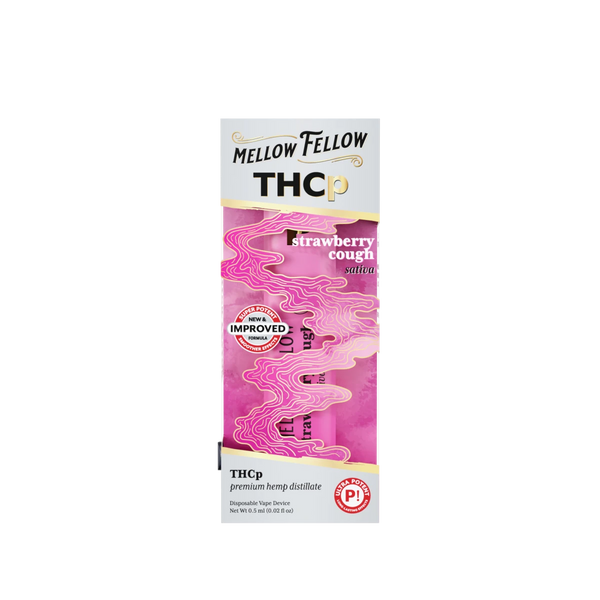
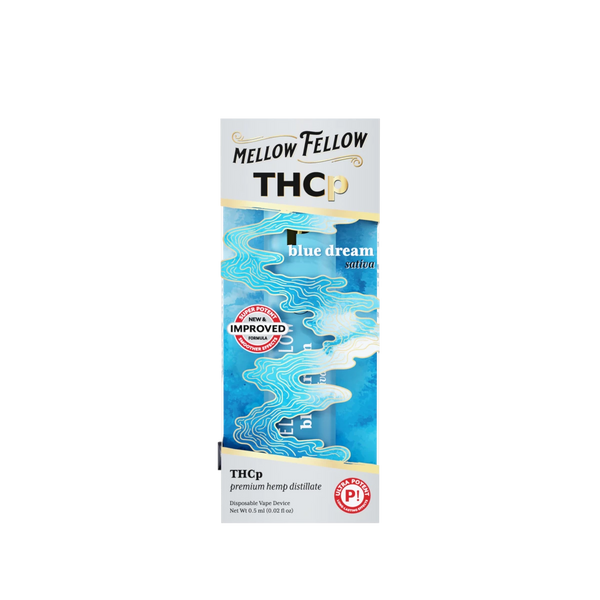
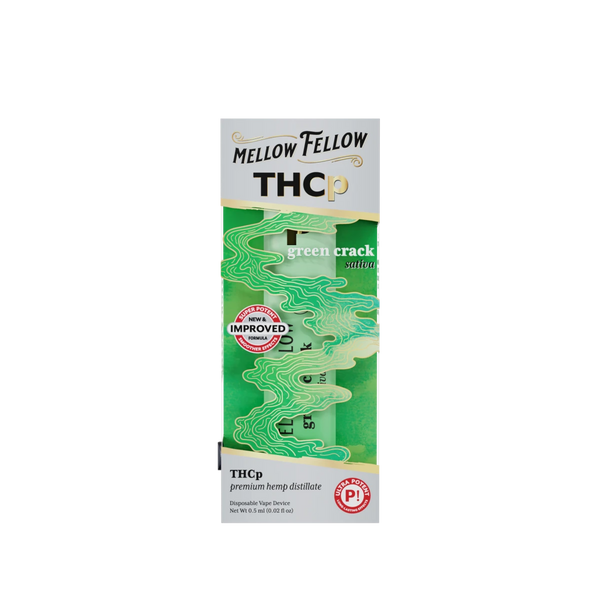
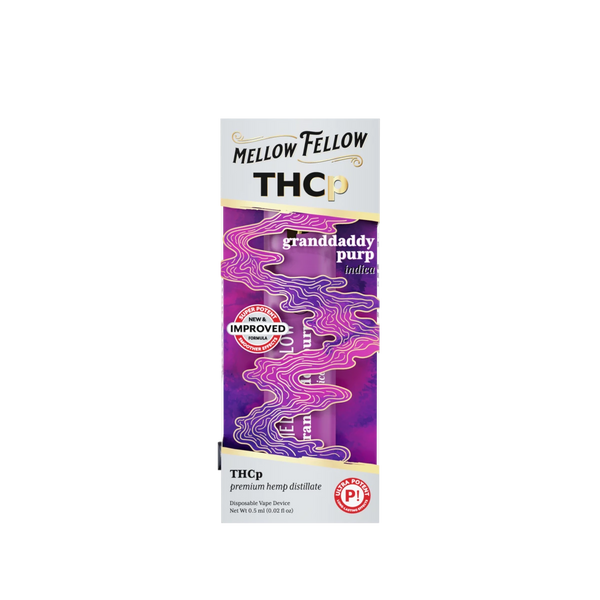
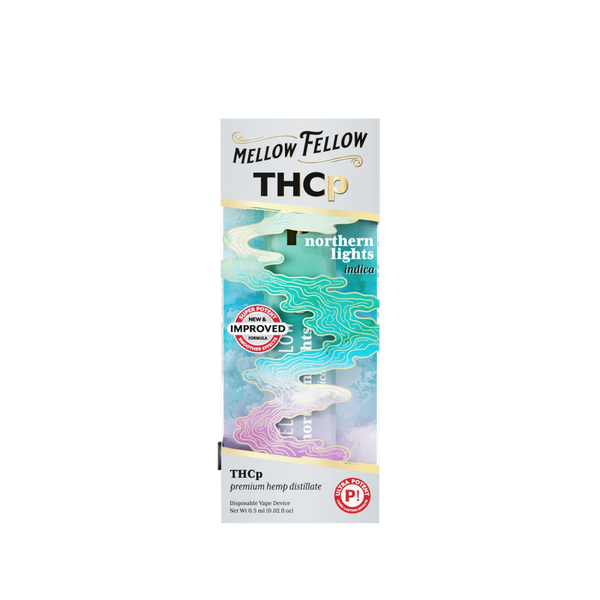
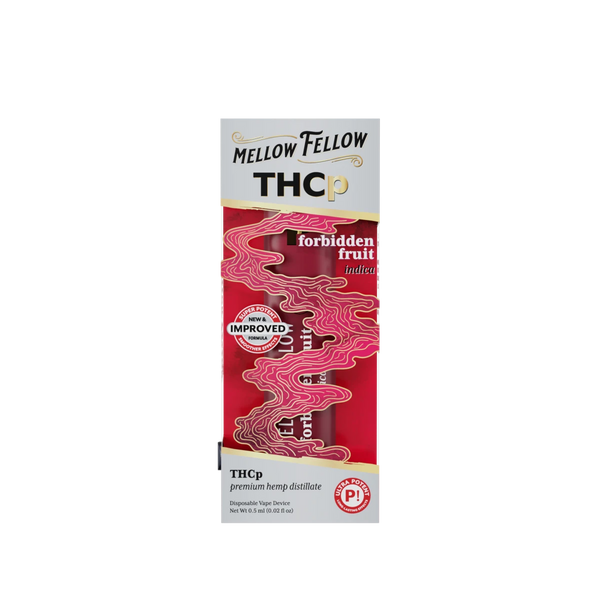










Leave a comment